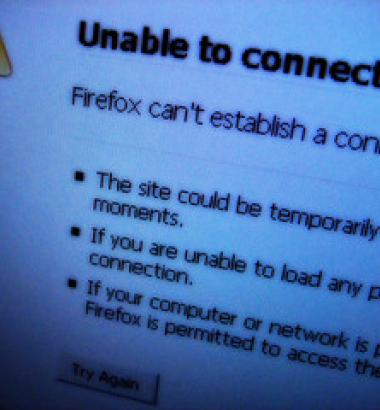
Terrorism's Two-Way Street
Cyber jihadists proceed at their own risk.
Five prominent Web forums for jihadist conversation and terrorist propaganda have been mysteriously unavailable for more than a week, according to a report in today’s Washington Post. A frustrated jihadist site administrator fumed: “The media arena is witnessing a vicious attack by the cross and its helpers on the jihadi media castles.” The lengthy blackouts—the first forum went down on March 22—have all the hallmarks of a cyberattack, though the Post quotes unnamed American officials disavowing U.S. responsibility.
Whoever is behind the outage, the incident illustrates a point specialists have been making lately: The Internet is not the open avenue for terrorists we once assumed it was. As Manuel R. Torres Soriano points out in a new article in Studies in Conflict and Terrorism, the Web is a two-way street. In 2010, Al Qaeda in the Arabian Peninsula (an Al Qaeda affiliate) attempted to publish step by step instructions for making a pipe bomb using kitchen ingredients. The recipe was to appear in the inaugural issue of Inspire, its English-language Webzine. But when would-be jihadists downloaded Inspire, they found a bowdlerized and garbled version of the original. Computer code lifted from a Web recipe for “The Best Cupcakes in America” had replaced the deadly bomb plans. Media outlets dubbed the incident “Operation Cupcake”; British cyber spooks had reportedly hijacked Al Qaeda’s flashy new magazine. (The original magazine with the actual bomb instructions reappeared online several weeks later, however.)
“The new opportunities available to terrorists thanks to cyberspace are balanced by new vulnerabilities,” writes Soriano, a political science professor at Pablo de Olavide University of Seville in Spain. Terrorists live in fear of hacking and surveillance. In the Arab world, they flit from one public Internet café to another to avoid detection, and constantly struggle to block infiltrators from entering their Web forums or infecting their files. Soriano quotes a senior forum administrator who gravely warns his comrades to take care. “These cafés are under tight surveillance because the tyrant security agencies are fully aware of all the IP addresses of every Internet café.”
In the current WQ we highlight Thomas Rid’s provocative article in the Journal of Strategic Studies, “Cyber War Will Not Take Place,” which in many ways echoes Soriano. Rid argues that it’s not as easy as it seems for malefactors to exploit the Web. (Rid, a reader in the Department of War Studies at King’s College London and a former public policy scholar at the Woodrow Wilson Center, wrote “Cracks in the Jihad” for the WQ in 2010.) Complex cyber operations require expertise and generous financing. Western militaries and intelligence agencies have plenty of both. Al Qaeda sympathizers do not. “The Web acts as a leveler,” writes Soriano, “each new advantage for the terrorists is accompanied by a new opportunity to weaken such groups.”